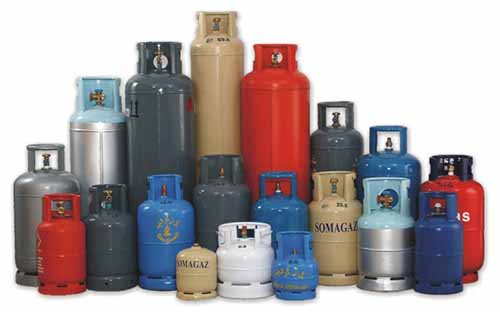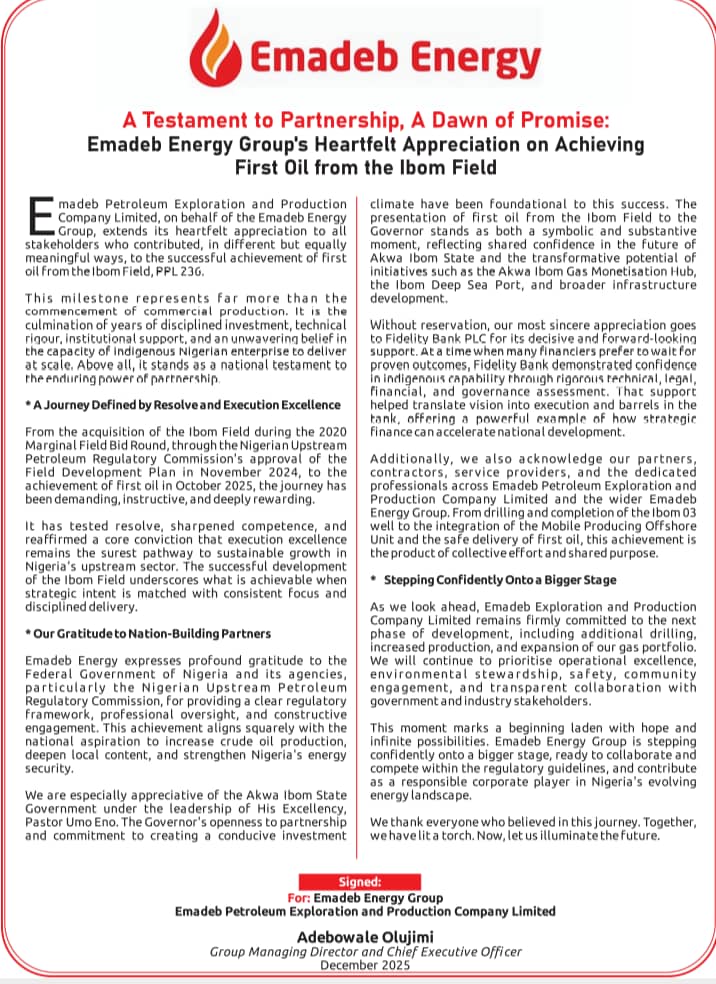The Federal Government has removed Value-Added Tax (VAT) on Liquefied Petroleum Gas and diesel in the country.
The Minister of Finance and Coordinating Minister of the Economy, Wale Edun, made this known while unveiling new fiscal incentives to boost foreign investments in Nigeria’s oil and gas sector on Wednesday, October 2, 2024.
The incentives are Value Added Tax Modification Order 2024 and the Notice of Tax Incentives for Deep Offshore Oil and Gas Production.
Edun, according to a statement issued by the Director of Information and Public Relations at the Finance Ministry, Mohammed Manga, said the incentives are aimed at revitalising Nigeria’s oil and gas sector.
Manga stated that the importation of diesel, feed gas, Liquefied Petroleum Gas, Compressed Natural Gas, electric vehicles, Liquefied Natural Gas infrastructure, and clean cooking equipment would no longer require VAT payment.
He added that the initiative would position Nigeria’s deep offshore basin as a premier destination for global oil and gas investments, bolster energy security, and accelerate Nigeria’s transition to cleaner energy sources.
He said: “The VAT Modification Order 2024 introduces exemptions on a range of key energy products and infrastructure, including diesel, feed gas, Liquefied Petroleum Gas, Compressed Natural Gas, electric vehicles, Liquefied Natural Gas infrastructure, and clean cooking equipment.
NEITI: Oil, gas companies owe FG $6bn, N66bn
“These measures are designed to lower the cost of living, bolster energy security, and accelerate Nigeria’s transition to cleaner energy sources.”
Manga noted that the notice of tax incentives for deep offshore oil and gas production provides new tax reliefs for deep offshore projects, adding: “This initiative is aimed at positioning Nigeria’s deep offshore basin as a premier destination for global oil and gas investments.
“These reforms are part of a broader series of investment-driven policy initiatives championed by President Bola Tinubu, in line with Policy Directives 40-42.
“They reflect the administration’s strong commitment to fostering sustainable growth in the energy sector and enhancing Nigeria’s global competitiveness in oil and gas production.
“With these bold initiatives, Nigeria is firmly on track to reclaim its position as a leader in the global oil and gas market.
“These fiscal incentives demonstrate the administration’s unwavering commitment to fostering sustainable growth, enhancing energy security, and driving economic prosperity for all Nigerians.”
- 2 die in Lagos tanker explosion - December 25, 2025
- 6 Zamfara lawmakers dump PDP for APC - December 25, 2025
- Fire outbreak: Sanwo-Olu orders demolition of GNI building - December 25, 2025










